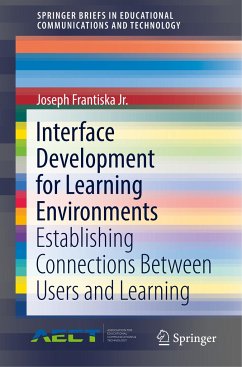
Instructional Design Principles for High-Stakes Problem-Solving Environments

PAYBACK Punkte
19 °P sammeln!
This book examines the types of problems and constraints faced by specialists in the areas of security, medicine, mental health, aviation and engineering. Every day we rely on highly trained specialists to solve complex problems in high-stakes environments, that is, environments involving direct threats to the preservation of human life.While previous work has tended to focus on problem solving in a single domain, this book covers multiple, related domains. It is divided into three parts, the first of which addresses the theoretical foundations, with coverage of theories of instructional desig...
This book examines the types of problems and constraints faced by specialists in the areas of security, medicine, mental health, aviation and engineering. Every day we rely on highly trained specialists to solve complex problems in high-stakes environments, that is, environments involving direct threats to the preservation of human life.
While previous work has tended to focus on problem solving in a single domain, this book covers multiple, related domains. It is divided into three parts, the first of which addresses the theoretical foundations, with coverage of theories of instructional design and expertise. Part two covers the five high-stakes domains and offers directions for training in these domains. In turn, part three provides practical guidelines for instructional design in high-stakes professions, including learner analysis, task analysis, assessment and evaluation.
The book is intended for a broad readership, including those who operate in high-stress, time-pressure occupations. Trainers at professional organisations can utilise the theoretical frameworks and training strategies discussed in this book when preparing their clients for complex, real-world problem solving. Further, the book offers a valuable resource for academics and graduate students, as well as anyone with an interest in problem solving.
While previous work has tended to focus on problem solving in a single domain, this book covers multiple, related domains. It is divided into three parts, the first of which addresses the theoretical foundations, with coverage of theories of instructional design and expertise. Part two covers the five high-stakes domains and offers directions for training in these domains. In turn, part three provides practical guidelines for instructional design in high-stakes professions, including learner analysis, task analysis, assessment and evaluation.
The book is intended for a broad readership, including those who operate in high-stress, time-pressure occupations. Trainers at professional organisations can utilise the theoretical frameworks and training strategies discussed in this book when preparing their clients for complex, real-world problem solving. Further, the book offers a valuable resource for academics and graduate students, as well as anyone with an interest in problem solving.












